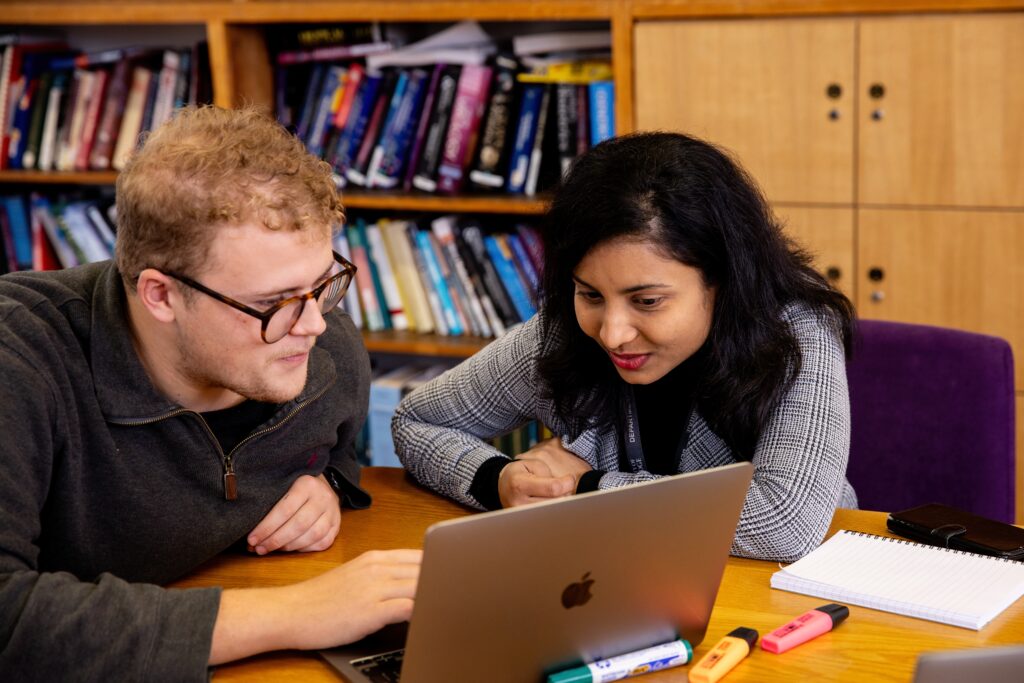The programme provides a balance of academic, research and clinical experiences. Students will undertake a set of core modules which comprise the taught component of the course alongside a research project and clinical placement.
Modules offered include*:
Research Project:
- Computational Research Skills Training (32 hrs): This module covers Data Analysis and Scientific Computing; Core Statistics; Reproducible research skills; and Visual Data Presentation.
- Improving Scientific Methods in Cognitive Neuroscience (16 hrs): This module will encourage students to think critically about how behavioural research is conducted; the robustness of scientific claims and new initiatives that are reinventing the foundations of our field.
- Mental Health and Well-Being: Definitions, Diagnosis, and Differences (20 hrs): This is an introduction to psychological theoretical frameworks with an integrative, multimodal, perspective as appropriate and adapted to circumstance and context.
- Psychological Therapy and Clinical Psychology: Theoretical Frameworks (20 hrs): Students will develop an understanding of the formulation and implementation of psychologically informed interventions. Therapeutic techniques will be introduced, and processes as applied when working with a range of different individuals.
- Governance of Clinical Practice (20 hrs): Introduction to the legislative and national planning contexts for service delivery and clinical practice in the UK with some attention to these issues in other countries.
- Public Mental Health (20 hrs): Covers key concepts that influence mental health epidemiology and public health; principles of social determinants of health along the life-course in mental health; how genetics influences mental health; life stressors and mental health outcomes.
- Evaluating Practice: Outcome Measures and Self-Reflection (20 hrs): Covers evidence-based therapy outcome measures in relation to recovery, values and goals. The importance of self-awareness and working as a reflective practitioner within ethical and professional practice frameworks.
*Please note that modules offered are subject to change.
The research project will begin in November and run for 32 weeks. Students will be based one day/week during term time in the research group of the research programme in which their research project is embedded. Students are expected to spend approximately 75 hours each term working on their thesis. Students will be given a list of potential projects to choose from and will be given time and support at the start of the first term to meet with course supervisors and lab based research leads to discuss potential projects, and to develop a research project outline.
Professional Placements:
Students will have the opportunity to work in clinical services in Cambridgeshire County including NHS and County Council statutory and third sector organisations. Placements will take place 2 days per week over the course of the second or third term and will include: undertaking a service-related audit using service data; co-leading group therapy with a registered professional; scoring neuropsychological assessments and helping to prepare assessment reports; compiling developmental histories; and other activities that will enable to student to experience mental health services first hand.


